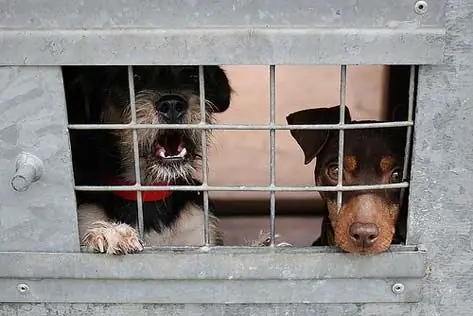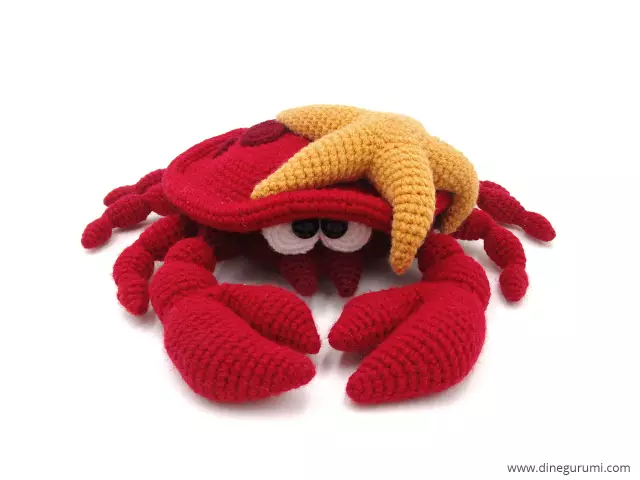
- Tác giả Daisy Haig haig@petsoundness.com.
- Public 2023-12-17 03:15.
- Sửa đổi lần cuối 2025-01-24 12:44.
Khi bạn mua một con chó con, bạn mua một "giấy chứng nhận sức khỏe" để đi cùng với nó. Giống như bất kỳ người tiêu dùng có đầu óc theo nghĩa đen nào, bạn cho rằng giấy chứng nhận có tiêu đề này có nghĩa là cô ấy đã được bác sĩ thú y kiểm tra và đã nhận được con dấu phê duyệt trong bộ y tế.
Đoán lại.
Tuần trước, tôi đã nhận được một loạt email từ danh sách phục vụ FVMA (Hiệp hội Y tế Thú y Florida) của tôi. Chủ đề là sự nhầm lẫn chuyên môn phổ biến về OCVIs (Giấy chứng nhận chính thức của Thanh tra thú y đối với việc bán chó hoặc mèo nội bộ). OCVI, một biểu mẫu có tên gọi chung là “giấy chứng nhận sức khỏe”, là một trong những tài liệu mà hầu hết các tiểu bang yêu cầu bác sĩ thú y có giấy phép hoàn thành trước khi một con vật có thể được bán hoặc vận chuyển qua các tuyến đường của tiểu bang.
the point of this document? to ensure animals are vaccinated and free of parasites or other infectious diseases before sale, not (contrary to popular opinion, including mine before last week) to certify the animal’s complete health.
(at least that’s how it stands in the great state of florida, given the confusion that reigns over what these documents actually mean and how ocvis are to be filled out.)
i wasn’t sure i believed this. after all, it has always seemed to me that the purpose of this form was to ensure that unscrupulous breeders and pet shops couldn’t pass on clearly defective “merchandise.” even if you could care less about animal health and welfare, it makes sense that a health certificate should certify health at the time the animal is examined-in the interest of consumer protection, at the very least.
the emails on this thread proved otherwise. indeed, several veterinarians spoke out against the ocvi as a proof of health, referencing the need to avoid legal liability in the event that a purchased pet prove chronically ill or congenitally flawed.
silly me, i thought that was the point. since we get paid to sign these documents i figured the financial remuneration was in exchange for our expertise-that is, beyond pushing a few shots, checking for kennel cough and expertly scooping stool from a rectum for analysis.
wrong!
confused, i researched this issue. and here’s what i found:
apparently, the problem of “health certification” and veterinarian resistance to the issue stems from a drive to make vets liable for congenital illnesses that manifest up to a year after purchase when they sign ocvis.
example: a pup that was normal when a vet examined him at 8 weeks. six months later he’s diagnosed with hip dysplasia. and guess what? according to this proposed interpretation of ocvis the vet is potentially liable for his treatment.
given the choice between a document that makes me liable for what i can attest to and one that requires a crystal ball for the kind of accuracy i’m willing to sign my name to, i guess i’ll elect the former any day of the week. can’t blame my fvma colleagues on that score.
but why the either/or? why can’t i simply be liable for all the problems any reasonable vet should have seen at the time the exam?
honking heart murmurs, undescended testicles, certain obvious knee and hip diseases…
don’t these congenital niceties deserve to be included among the “health” issues we need to vet as vets?
i see pet shop pups and other shipped pets with two day-old ocvis bearing obvious congenital illnesses any third-year vet student could diagnose. clearly that’s wrong. someone needs to be accountable when these conditions are given a pass. but legally, all’s fair and square if a health certificate only deals in infectious diseases. after all, most states also have pet lemon laws making it “easy” to return a defective afflicted animal within a certain period of time. no harm no foul, right?
wrong again. no animal should be sold without a veterinarian’s stamp of approval within ten days of the sale. and that should mean that the animal appears to be completely healthy at the time of the exam. any congenital abnormalities should be written on the form. anything less means no sale. no way.
responsible breeders wouldn’t dream of doing otherwise. pet shops, on the other hand, exploit all the angles. they work with vets who know the loopholes as well as they do. they even try to get prospective owners to sign lemon law waivers, passing them off easily in the pile of paperwork that attends the point of sale.
as it stands, what you consider a health certificate for that puppy in the window may mean nothing except that said pup was vaccinated, no upper respiratory symptoms were noted and that no parasites were observed on the day the pup was presented to the vet for examination. but if vets are liable for only those meager, easily refutable functions, what does that say about the entire “health certification” process?
as my former ignorance of the law clearly implies, not all vets even know what they’re signing when they complete these forms. but you can bet the ones who work for the pet shops do.
check your state’s regulations to determine what your health certificates mean. even if you’ll never purchase a pet in your lifetime, your moral compass should drive you to care about what happens to thousands of animals every day in your state/province/country.
no-health health certificates? they simply ensure that poor quality purveyors of congenitally flawed animal flesh can continue to breed animals irresponsibly, unfairly and cruelly. and that’s gotta change.
Đề xuất:
Tuần Lễ Nhận Nuôi Thú Cưng ít được Nhận Nuôi: Ưu điểm Của Việc Nhận Nuôi Thú Cưng Lớn Tuổi Hơn

Đối với những chủ sở hữu vật nuôi mới và tiềm năng, việc đến thăm một nơi trú ẩn dành cho động vật để nhận nuôi một con vật cưng trẻ - và tốt nhất là đã được chuyển nhà - là tiêu chuẩn. Những con vật nhỏ hơn trông ấm áp hơn, dễ thương hơn và năng động hơn n
Vật Nuôi đi Du Lịch Thường Cần Giấy Chứng Nhận Sức Khỏe

Bạn có biết rằng nếu bạn vượt qua ranh giới tiểu bang với vật nuôi của mình, bạn phải mang theo giấy chứng nhận kiểm tra thú y hiện hành không? Đúng rồi. Hãy nhớ lại lần cuối cùng bạn đến thăm dì Mable ở Ohio hoặc đi bộ đường dài ở Virginia. Bạn đã phạm luật nếu bạn mang theo Fluffy hoặc Fido mà không có giấy chứng nhận sức khỏe
Các Mối Nguy Hiểm đối Với Sức Khỏe Vật Nuôi Theo Mùa - Mối Nguy Hiểm đối Với Vật Nuôi Trong Mùa Thu

Mặc dù sự thay đổi theo mùa liên quan đến mùa thu có sức hấp dẫn lớn đối với con người, nhưng chúng tiềm ẩn nhiều nguy cơ và nguy hiểm đến sức khỏe cho vật nuôi của chúng ta mà người chủ phải đề phòng
Cho Bệnh Nhân ăn - Bỏ đói Bệnh Nhân Ung Thư - Nuôi Chó Bị Ung Thư - Nuôi Thú Cưng Bị Ung Thư

Nuôi thú cưng đã được chẩn đoán mắc bệnh ung thư là một thách thức. Tôi tập trung vào công việc ở đây và bây giờ và sẵn sàng giới thiệu các công thức nấu ăn cho khách hàng của tôi, những người có nhiều thời gian và làm việc liên quan đến nấu ăn cho thú cưng của họ
Phí Nhận Con Nuôi Chó - Chi Phí Nhận Con Nuôi Chó - Nhận Con Nuôi Chó Bao Nhiêu

Bạn đã bao giờ tự hỏi chi phí nhận nuôi một con chó là bao nhiêu? Dưới đây là bảng phân tích chung về phí nhận nuôi chó phổ biến
